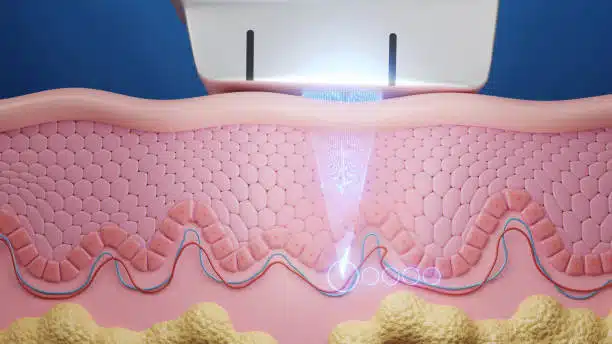Choosing the right dark spot remover for your skin type is essential to effectively treat hyperpigmentation while minimizing the risk of irritation or adverse reactions. This guide will help you navigate the various options available, ensuring you select a product that suits your unique skin needs.
Understanding Dark Spots and Hyperpigmentation

Dark spots, often referred to as hyperpigmentation, occur when the skin produces excess melanin. Common causes include:
- Sun Exposure: UV rays can increase melanin production.
- Hormonal Changes: Conditions like pregnancy or menopause can trigger dark spots.
- Skin Injuries: Post-inflammatory hyperpigmentation can result from acne, cuts, or burns.
- Aging: Natural aging processes can lead to uneven skin tone.
Types of Dark Spot Removers

When selecting a dark spot remover, consider the following categories of products:
1. Topical Treatments
Topical treatments are often the first line of defense against dark spots. Look for products containing:
- Hydroquinone: A potent skin-lightening agent available by prescription. Use with caution due to potential side effects like irritation and increased sensitivity.
- Retinoids: These vitamin A derivatives promote cell turnover and can help fade dark spots over time.
- Vitamin C: An antioxidant that brightens skin and reduces melanin production.
- Kojic Acid: Known for its ability to inhibit melanin production, making it effective for lightening dark spots.
- Azelaic Acid: Helps reduce pigmentation and is suitable for sensitive skin types.
2. Chemical Exfoliants
Chemical exfoliants like alpha-hydroxy acids (AHAs) and beta-hydroxy acids (BHAs) can help slough off dead skin cells, revealing brighter skin underneath. They also enhance the absorption of other active ingredients.
3. Cosmetic Procedures
For more severe cases of hyperpigmentation, consider professional treatments such as:
- Laser Therapy: Targets dark spots with concentrated light energy, leading to gradual fading.
- Chemical Peels: Remove the top layer of skin to promote new skin growth.
- Microdermabrasion: Gently exfoliates the skin’s surface to improve texture and tone.
Choosing Based on Skin Type
1. Oily or Acne-Prone Skin
Opt for non-comedogenic products that won’t clog pores. Ingredients like salicylic acid and retinoids are beneficial for this skin type.
2. Dry or Sensitive Skin
Choose gentle formulations with soothing ingredients like aloe vera or chamomile. Avoid harsh chemicals that may exacerbate dryness or irritation.
3. Darker Skin Tones
Individuals with darker skin tones should be cautious with certain treatments that may cause further pigmentation issues. Ingredients like azelaic acid and glycolic acid are often recommended by dermatologists for their efficacy and lower risk of adverse effects in darker complexions.
Also Read : Top Cleansing Oil Benefits You Need To Know For Healthier, Glowing Skin
Conclusion
Selecting the best dark spot remover requires understanding your specific skin type and concerns. Topical treatments, chemical exfoliants, and cosmetic procedures each offer unique benefits. Always consult with a dermatologist before starting any new treatment regimen, especially if you have sensitive or darker skin tones. Consistent use of sunscreen is essential in preventing further pigmentation while treating existing spots.
FAQs
Q: How long does it take to see results from dark spot removers?
A: Results can vary; typically, you may start seeing improvements within 4 to 12 weeks depending on the product used and your skin type.
Q: Can I use multiple products at once?
A: Yes, but introduce one product at a time to monitor for any adverse reactions. Consult a dermatologist for personalized advice.
Q: Is sunscreen necessary when treating dark spots?
A: Absolutely! Daily sunscreen application is crucial as it protects against further pigmentation and helps existing spots fade more effectively.
Q: Are home remedies effective for dark spots?
A: Some home remedies may provide mild results, but they often lack scientific backing compared to clinically proven treatments.





